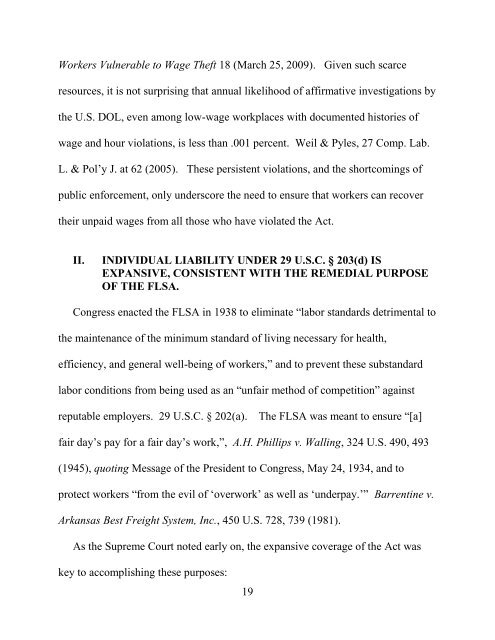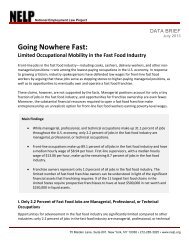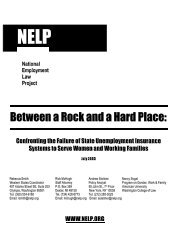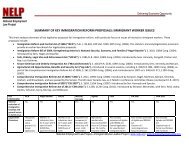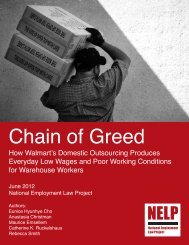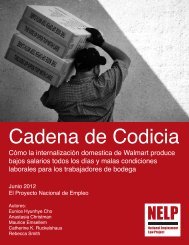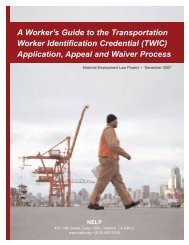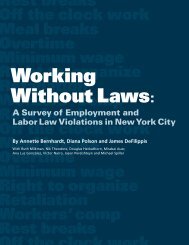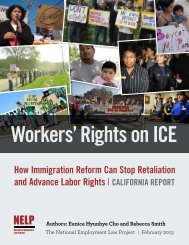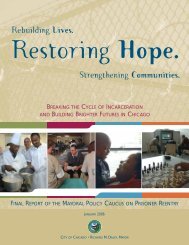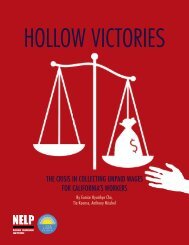Torres v. Gristede's Operating Corp.
Torres v. Gristede's Operating Corp.
Torres v. Gristede's Operating Corp.
Create successful ePaper yourself
Turn your PDF publications into a flip-book with our unique Google optimized e-Paper software.
Workers Vulnerable to Wage Theft 18 (March 25, 2009). Given such scarce<br />
resources, it is not surprising that annual likelihood of affirmative investigations by<br />
the U.S. DOL, even among low-wage workplaces with documented histories of<br />
wage and hour violations, is less than .001 percent. Weil & Pyles, 27 Comp. Lab.<br />
L. & Pol’y J. at 62 (2005). These persistent violations, and the shortcomings of<br />
public enforcement, only underscore the need to ensure that workers can recover<br />
their unpaid wages from all those who have violated the Act.<br />
II.<br />
INDIVIDUAL LIABILITY UNDER 29 U.S.C. § 203(d) IS<br />
EXPANSIVE, CONSISTENT WITH THE REMEDIAL PURPOSE<br />
OF THE FLSA.<br />
Congress enacted the FLSA in 1938 to eliminate “labor standards detrimental to<br />
the maintenance of the minimum standard of living necessary for health,<br />
efficiency, and general well-being of workers,” and to prevent these substandard<br />
labor conditions from being used as an “unfair method of competition” against<br />
reputable employers. 29 U.S.C. § 202(a). The FLSA was meant to ensure “[a]<br />
fair day’s pay for a fair day’s work,”, A.H. Phillips v. Walling, 324 U.S. 490, 493<br />
(1945), quoting Message of the President to Congress, May 24, 1934, and to<br />
protect workers “from the evil of ‘overwork’ as well as ‘underpay.’” Barrentine v.<br />
Arkansas Best Freight System, Inc., 450 U.S. 728, 739 (1981).<br />
As the Supreme Court noted early on, the expansive coverage of the Act was<br />
key to accomplishing these purposes:<br />
19


